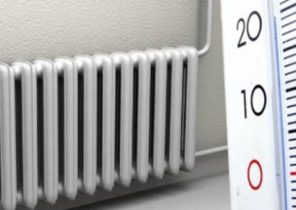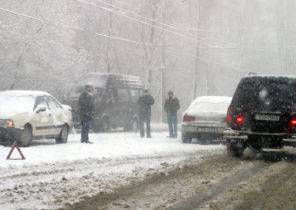In his long article published on the pages of this magazine last week, Vladimir Putin outlined his view on the reasons for the outbreak of the Second world war. Many Western commentators have rejected an article calling it biased propaganda. As a scientist who has long worked in the Moscow archives, and later held the position of a diplomat, I disagree. To understand why, scientists and diplomats need to offer a more creative response. And to understand this, we need to ask four questions.
1. What Putin said, and whether his words are truth?
Putin really want to justify the Molotov-Ribbentrop Pact signed in August 1939, and thus to withdraw from the Soviet Union, the responsibility for the outbreak of the Second world war. Instead of this Pact, Putin proposes to pay close attention to the Munich agreement of 1938, and to place the responsibility on those countries that signed it. About the obvious errors in the article, Putin, candid reservations and selective use of sources has already been much written. And, although it really is worth paying attention to, the wider context is more important.
Any knowledgeable historian to talk about the mistakes of Britain and France much more. For example, in his article Putin does not mention the Anglo-German naval agreement, or the agreement of the Choir-Laval in 1935, although both of these agreements undermine the foundations of collective security. Few would argue with the assertion by Putin that “all the leading countries in varying degrees, have their share of guilt” for the outbreak of the Second world war. In an interview with Russian television in March, Putin with irritation and said: “Let other countries then to be honest as they evaluate the behavior of its leadership at the time”. Apparently, Putin did not realize that criticism of the policy of appeasement till today is the main topic of debate in the West. Historians always choose, rank in order of importance and combine historical facts to formulate their arguments. However, no matter how serious their differences, they are never accused of “falsification of history”, as it sometimes happens today in Russia.
The value of the argument Putin is not so much how they correspond to reality, as to what they can tell us about the views of the Russian President and the state relations between Russia and the West.
2. Why Putin wrote this article and what it says?
Putin wrote his article in response to a resolution adopted by the European Parliament in September of last year, “About the importance of preserving historical memory for the future Europe”. The second of the 22 paragraphs of the resolution condemns the Molotov-Ribbentrop Pact, its secret protocols and the partition of Eastern Europe that followed the signing of the Pact. Contrary to the assertions of Putin, the resolution does not say that the Pact provoked the outbreak of the Second world war. It only says that he was the “immediate” cause. This keyword was added to the text of the resolution after its review of the first option. It involves understanding the deeper root causes. If it wasn’t, Putin would be right.
The European Parliament does not play any diplomatic role. The adoption of this resolution, nothing happened, and only a few Europeans had seen her. Putin could ignore it. However, although it operated a nuclear power, fought with the spread of the coronavirus was preparing to amend the Constitution to stay in power after 2024, he decided to respond to this resolution. In December last year, in his long speech to the leaders of the CIS countries, he said his desire to write an article in response to this resolution. He claims that he has read a huge number of documents, including documents concerning relations between the Soviet Union and Germany in 1939. Journalist Alexei Venediktov, who is watching Putin for many years, I am convinced that the style of the article Putin gives as its author. This behavior is unusual for the leader of a major power. The article shows that Putin is not just proud of the role the Soviet Union during world war II, he hung up.
Why Putin did it? He claims that he wants to defend the sacred memory of the enormous sacrifice of the Soviet Union in the war. From his point of view, the assertion that the Soviet Union was responsible for starting world war II, belittle the sacrifice. However, between criticism of the actions of the state and honoring the dead there is no contradiction. Germany was defeated thanks to Soviet people and against the actions of Stalin. Western leaders and diplomats have always had great respect for Soviet citizens who perished in the war.
Some observers believe that Putin needs to protect the memory of the Second world war, to provide legitimacy to his regime. The more this war is deleted in the past, the more pronounced becomes its role as the backbone of the regime — hence the tightening of control over the opinions and the criminalization of dissent. The fact that Sergey Naryshkin, head of Russian foreign intelligence service, is also Chairman of the Russian historical society, should not be considered a coincidence. However, Putin’s article was aimed primarily at Western audiences. Although it was posted on the official Kremlin website and it was discussed in Russia, it was published in a major American (not European) magazine.
3. Why the European Parliament adopted this resolution?
Putin argues that the resolution of the European Union is an element of “a deliberate policy of destruction of the postwar world order”. But the truth is less dramatic and more eloquent.
First, the resolution was not adopted unanimously: 20% of the members of the European Parliament voted against it. The main source of the opposition — 24 of 73 votes against — was the United Kingdom. That is 38% of the British members of the European Parliament voted against the resolution — the highest percentage of dissent among all the countries, except Greece and Cyprus. Among those who disagree with the resolution turned out to be Anne Widdecombe (Ann Widdecombe), the former state Minister. Not only Western historians argue about the reasons for the outbreak of the Second world war. Politicians do it too.
Almost all the members of the European Parliament, speaking in support of the resolution were representatives of the countries of Central and Eastern Europe. They turn to the past because you’re worried about this. They point to the horrors of any kind of extremism, including within European society, because he can be reborn and become “the modern threat to democracy”. Why was it necessary to mention about the Molotov-Ribbentrop Pact? Because these countries fear a repeat of history.
They are afraid that Russia — a country which is justified by the Covenant — and not Germany, which condemns it. The resolution States that “the Russian authorities deny responsibility for the signing of the agreement and its consequences.” In may the Minister of foreign Affairs Sergey Lavrov attempted to justify the Pact, while at the exhibition timed to the 80th anniversary of its signing. And his statement was far from the only one. When the Russian Embassy trying social media to justify the occupation of European countries during the Second world war, they hint that one day Russia may again go on the offensive. Such caricatures of public diplomacy do not serve anyone’s interests.
As Faulkner wrote, “the past never dies, it never even passes.” But Russia, and now Putin himself struggling to keep him alive, and it only hurts them. This further undermines the credibility of modern Russia and its intentions. Ironically, but it is the lack of confidence in the intentions of the Soviet Union forced Britain and France to abandon the Alliance with the Soviet Union on the eve of the Second world war.
4. What would the West say now?
Think how strange was this episode. Putin misread meaningless document and not a little bothered to write a critical response that few people can persuade, but it can perpetuate distrust of Russia. Is there any way out of this situation? Diplomats focus on what they can reach agreement. The West now is to do three things.
First, regardless of whether there were differences regarding the reasons for the outbreak of the Second world war and how horrible the Soviet regime was, nobody can dispute the fact that the greatest sacrifice in the war brought the Soviet Union — Russians, Ukrainians, Belarusians, Kazakhs and other peoples. We are talking about simple arithmetic. And the West needs to say it clearly and loudly. It does not require any special effort. But the European Parliament can even adopt another resolution.
Second, Putin insists that the war “it is crucial to rely solely on archival materials and testimonies of contemporaries, to avoid any ideological and politicized guessing”. No doubt about it. We all need to share a large amount of documents received from a number of sources. In the case of the Soviet Union this means that you need to study the documents of the Ministry of foreign Affairs, but also of the Central Committee, Politburo, NKVD, and other elements of the system. In recent years Russia has made significant progress in the process of opening the archives. In this sense, it should move forward like other countries. It is a universal principle that applies to every historical issue. So you need to stop stalking historians, especially those who are trying to investigate the crimes of the Stalinist regime. Respect the sources. If the authorities do not agree with this, let them explain why.
Thirdly, argue about the history of her language. If you condemn the actions of one country or another in the past, this does not mean that she is guilty in the present. In an honest critical assessment is not bad, and it is not necessary to be afraid of. Today, many Western countries have experienced the consequences of the horrors of slavery and racism. To recognize the past is hard and painful, but necessary. Historical truth is not the kind of game where there can only be one winner.
So the West should respond. It is not necessary to search guilty and to count the points. Let’s say it openly and honestly. The call to the truth always sow your seeds. And if Putin can hardly be persuaded, there are people whom you can convince, and they survive it.
Dr. Nigel Gould-Davies — editor of Strategic Survey and senior fellow, International Institute for strategic studies. He was head of the economic Department of the British Embassy in Moscow and the British Ambassador to Belarus. He is the author of the book “Tectonic politics: global political risks in the age of transformation” (Tectonic Politics: Global Political Risk in an Age of Transformation).






